“All disease begins in the gut.” – Hippocrates
Table of Contents
- Introduction
- The Gut-Brain Connection Explained
- How Poor Gut Health Increases Stress
- Natural Ways to Improve Gut Health
- Stress Management Techniques That Support Digestion and Clarity
- Conclusion
- FAQs About Gut Health and Stress
Introduction
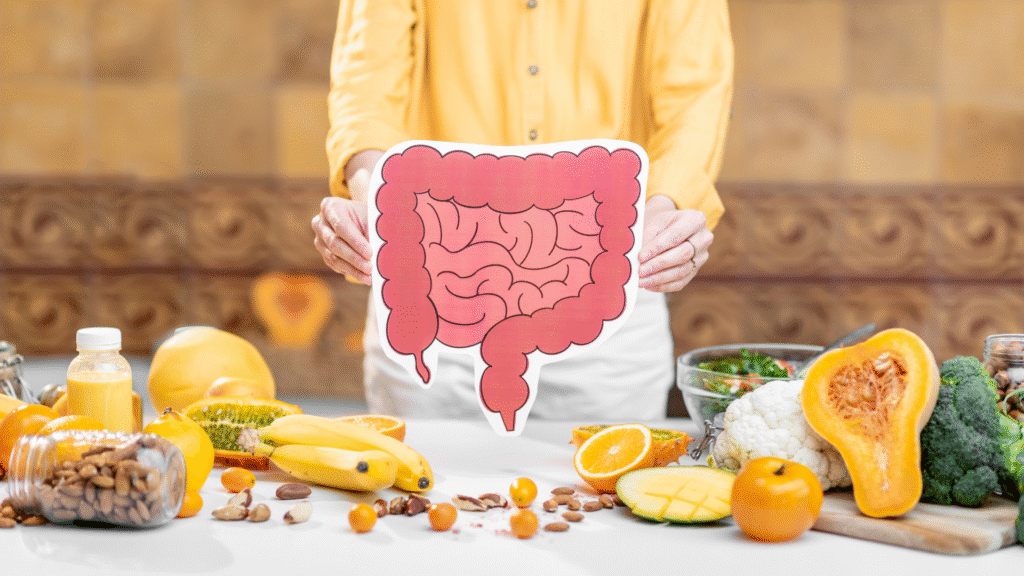
In today’s fast-paced world, stress seems almost unavoidable because it’s impossible to stay stress-free without actively managing it. Deadlines, digital distractions, and daily worries constantly drain our energy. But what if the key to handling stress and thinking more clearly isn’t in your mind, but in your gut?
Surprised to hear it right?
More and more research points to a fascinating truth: gut health and stress are deeply connected. Your digestive system doesn’t just break down food—it communicates with your brain, shapes your mood, and even influences your ability to focus that’s why when we eat something delicious, dopamine is released because they are both connected and affect each other.
In this guide, we’ll explore how the gut-brain connection works and how we can reduce stress by understanding it, why poor gut health makes stress worse, and the natural steps you can take to restore balance for calmness, energy, and mental clarity, and it will also help us to improve our health while reliving the stress.
The Gut-Brain Connection Explained
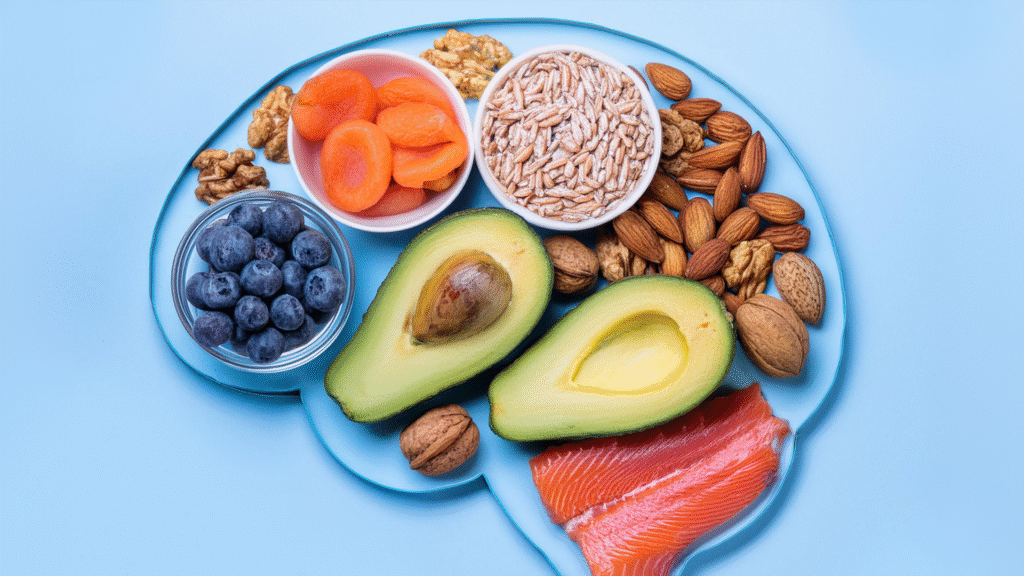
You may have heard the gut called the “second brain,” and think is it even possible. it’s not just a catchy phrase. The gut is home to:
- Over 100 trillion microbes (bacteria, fungi, and other organisms) that play a role in mood, immunity, and energy, which are connected with our mind.
- A dense network of neurons (nerve cells) connected to the brain through the vagus nerve, which makes them highly relatable.
- The production of key neurotransmitters, including serotonin, dopamine, and GABA, which regulate happiness, motivation, and relaxation this exactly proves the topic we are discussing bout this whole time.
When your gut is healthy, these chemical messengers work smoothly, keeping you energized, focused, and stress-resilient. But when the gut is imbalanced—due to poor diet, lack of sleep, or chronic stress—it sends distress signals to the brain, leading to anxiety, mood swings, and brain fog, and this type of thing happens a lot because of excessive screen time.
👉 Think of your gut as the “control center” of mental clarity: if it’s off-balance, your thoughts, focus, and emotions feel off-balance too.
How Poor Gut Health Increases Stress

Stress and gut health often create a vicious cycle. Here’s how:
- Stress affects digestion: When you’re stressed, it diverts the body’s blood flow away from digestion, resulting in slowing it down and causing issues like bloating, constipation, or stomach pain.
- Gut imbalance increases stress: An unhealthy gut can lower serotonin production, which may leave you more anxious, irritable, and less focused, and increase the stress rate.
- Inflammation plays a role: Poor gut health can trigger inflammation, which is directly linked to fatigue, mood disorders, and reduced mental clarity.
Common Signs Your Gut and Stress Are Connected

- Brain fog or trouble concentrating after meals
- Frequent stomach discomfort or irregular bowel movements
- Heightened anxiety during stressful situations
- Feeling tired even after a full night’s sleep
By recognizing these signs early, you can take proactive steps to restore balance with selective and healthy eating while focusing on proper sleeping.https://heathyhabit.online/
Natural Ways to Improve Gut Health
Taking care of your gut doesn’t require drastic measures or intensive medication. Instead, just focus on consistent daily habits.
1. Eat Gut-Friendly Foods
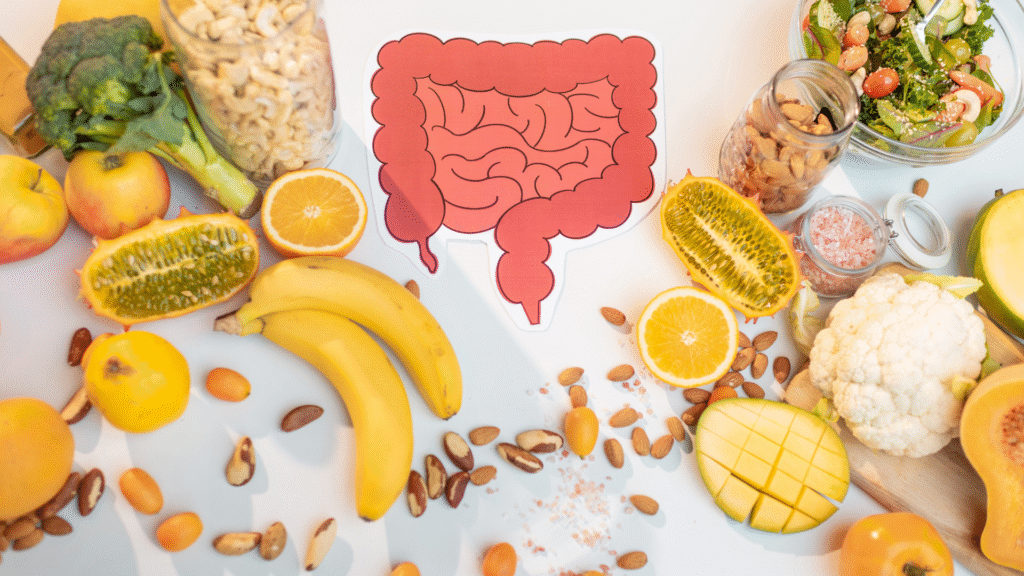
Your gut bacteria thrive on the right fuel. Adding probiotic-rich foods like yogurt, kefir, miso, sauerkraut, and kimchi helps populate your gut with beneficial bacteria instead of infectious one. Meanwhile, prebiotics from bananas, garlic, onions, and oats act as “food” for these good microbes and make them work to relieve your stress.
👉 Tip: Aim to fill half your plate with colorful vegetables at every meal. The fiber feeds your gut bacteria, helping them produce short-chain fatty acids that reduce inflammation and boost brain health.
2. Stay Hydrated

Water keeps everything moving smoothly in your digestive system. Drink a minimum of 8 glasses of water to stay hydrated for the whole day.. Dehydration can slow digestion, increase constipation, and make you feel sluggish. Start your morning with a glass of water before coffee to wake up your gut gently, it will make you feel refresh early morning.
3. Limit Processed Foods

Sugary snacks, refined carbs, and fried foods feed harmful bacteria in the gut. This imbalance often leads to cravings, mood swings, and increased anxiety. Gradually cutting back can significantly improve digestion and mood.
4. Move Your Body

Exercise isn’t just good for muscles; it’s also powerful for your gut, and stronger guts keep our mind stable while removing the clouds and stress from brain. Movement stimulates digestion while reducing bloating and it also helps regulate stress hormones. Even a 20-minute daily walk can improve both gut health and mental clarity.
Stress Management Techniques That Support Digestion and Clarity
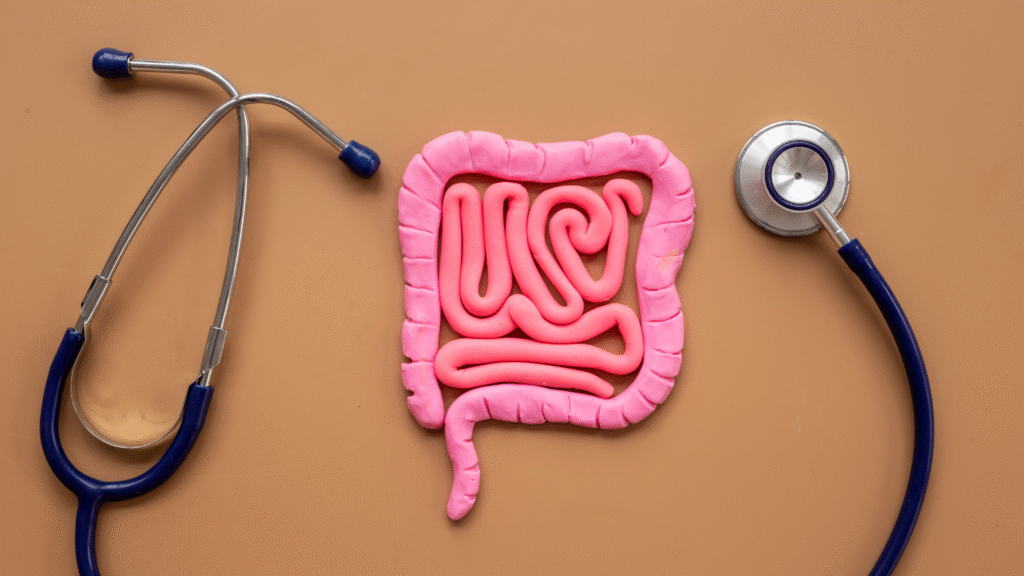
Gut health is about more than food—it’s also about how you manage stress. Because they work side by side. Here are natural ways to calm your mind while supporting digestion:
- Mindful Breathing: Just 5 minutes of deep belly breathing signals the body to relax, improving both stress levels and digestion.
- Yoga and Stretching: Gentle poses, especially twists, can help stimulate digestion and ease tension.
- Adequate Sleep: Sleep is when your body restores gut balance. Aim for 7–9 hours each night.
- Time in Nature: Exposure to sunlight and fresh air reduces cortisol (the stress hormone) and can help regulate your body’s natural rhythms.
- Digital Detox: Constant screen time can stress both the mind and gut. Try a short digital break daily to reset your nervous system.
Conclusion

Your gut and brain are in constant conversation. When your gut is nourished and balanced, your mind feels calmer, your focus sharper, and your stress levels lower. By eating gut-friendly foods, staying hydrated, moving your body, and practicing stress relief habits, you create a natural foundation for mental clarity and resilience. Also, lower the screen time for better results, adapt more habits like book reading to avoid using phones before sleep it will greatly help you sleep more peacefully
Remember: improving gut health and stress doesn’t happen overnight. But with small, consistent changes, you’ll feel the difference—inside and out.https://www.nhs.uk/
FAQs About Gut Health and Stress
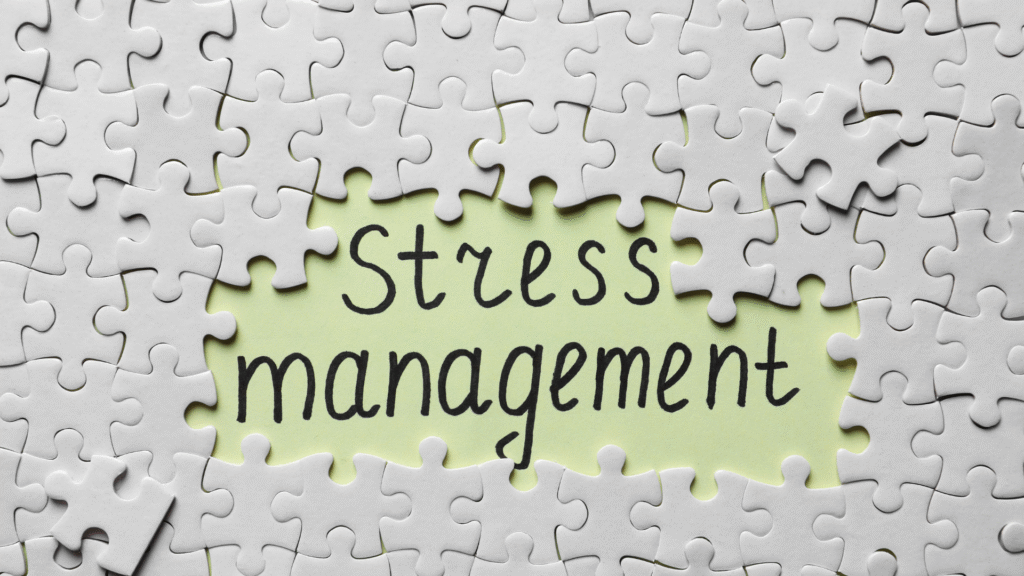
1. Can gut health really affect my mood?
Yes. Since most serotonin is made in the gut, an unhealthy digestive system can disrupt mood and increase stress.
2. How long does it take to improve gut health?
Noticeable changes can appear in as little as 2–4 weeks with consistent diet and lifestyle improvements.
3. What foods worsen gut health and stress?
Processed foods, refined sugar, excessive alcohol, and too much caffeine often disrupt gut bacteria and heighten stress.
4. Can stress alone cause gut problems?
Yes. Chronic stress slows digestion, increases inflammation, and can worsen gut imbalances.
5. Should I take probiotics for gut health?
Probiotic supplements may help, but natural food sources (like kefir, yogurt, and kimchi) are often more effective and easier to maintain long-term.
